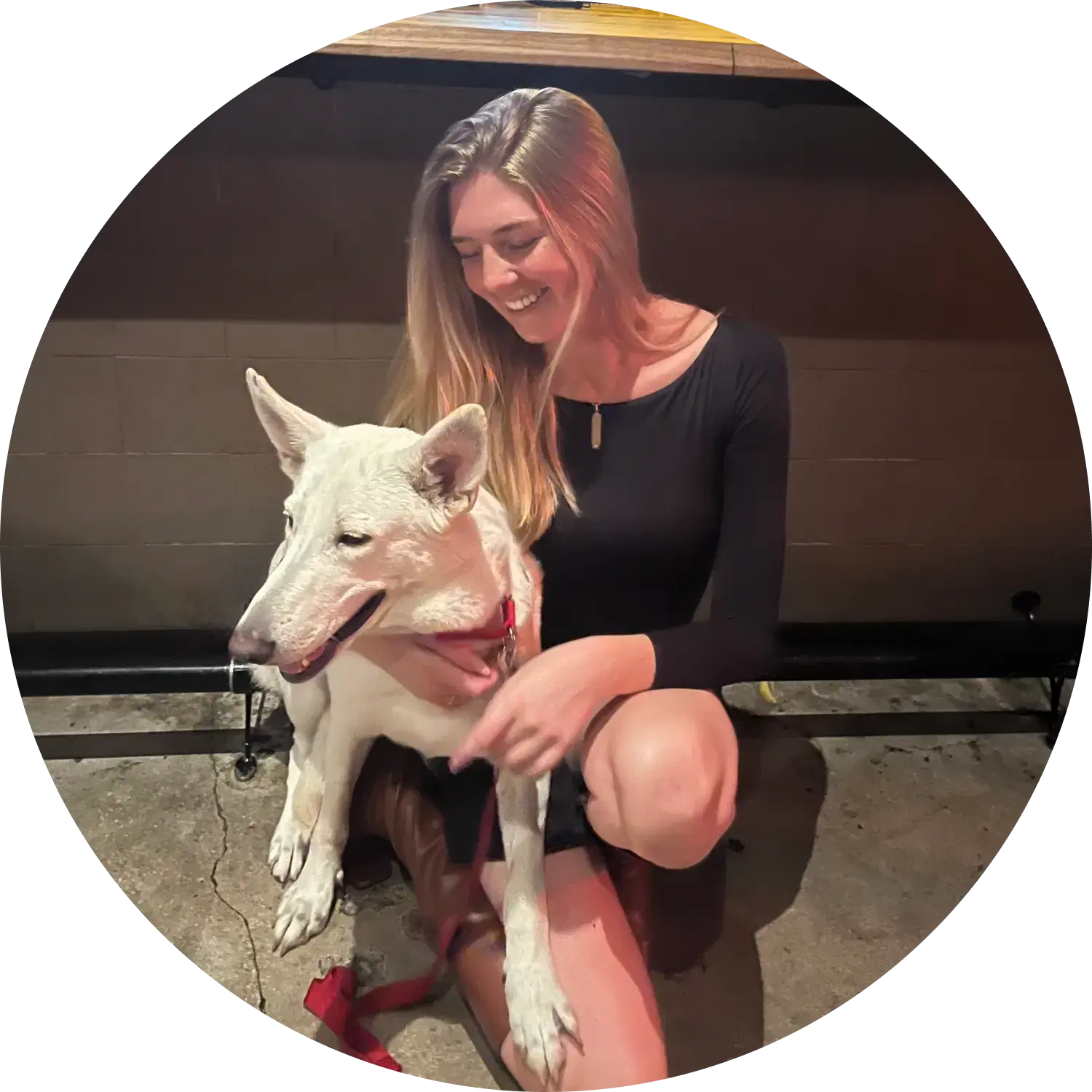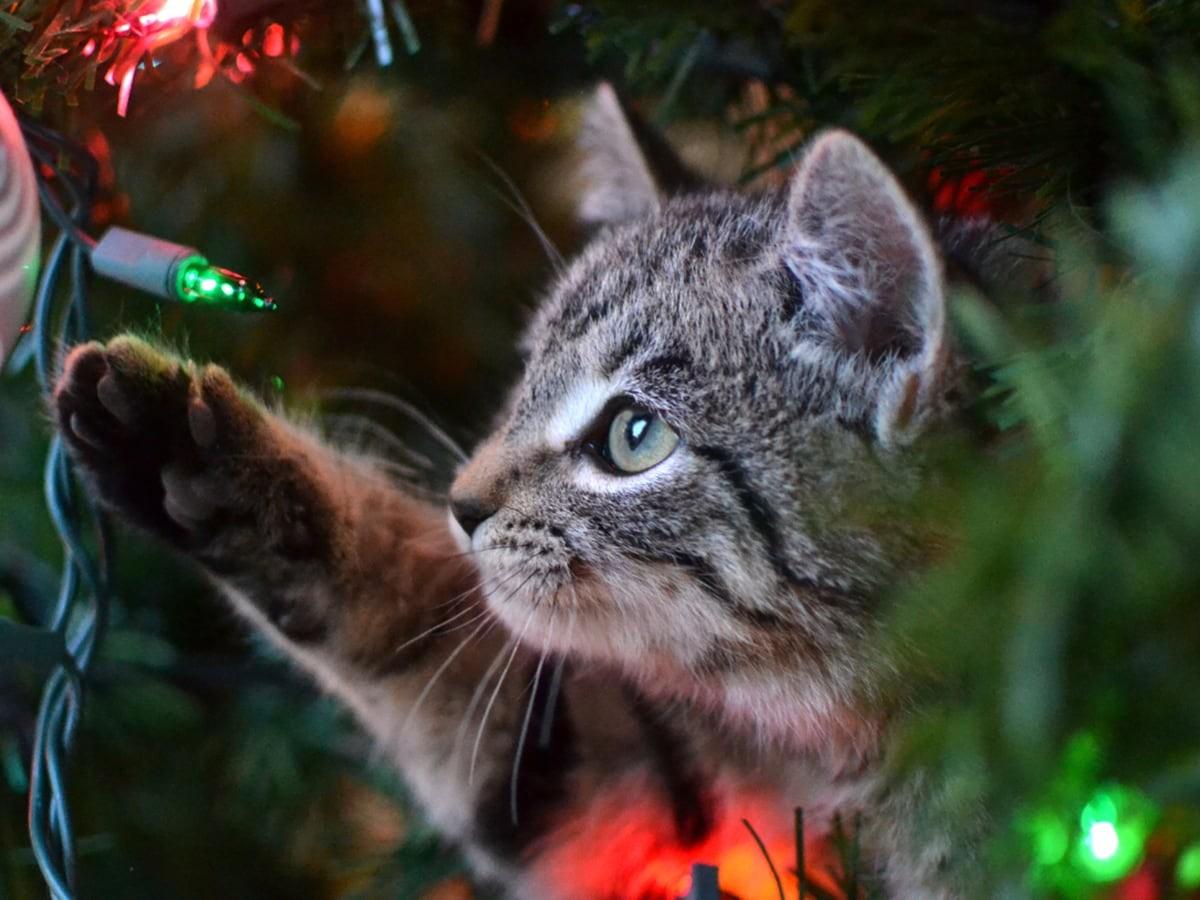Cat Safety: 5 Holiday Hazards to Avoid
The holidays are a fun time of year, but they can bring about additional stress and new hazards for our precious cats to get into. Your cat may experience more stress due to holiday visitors, many new sights and smells, decorations, and noise.
Here are five holiday hazards to be aware of to help keep your cat safe this holiday season.
Risk of Cold Weather-Related Accidents
Winter can be a challenging time of the year for many pet owners due to a variety of risks their cats may face.
The cold temperatures can put cats at risk of hypothermia, especially those left outside for extended periods of time. Many of us have more guests over for the holidays or may travel with our pets, creating more windows for our cat to escape outside without us realizing it. Keep a close eye on your cat to ensure that they won’t get loose and talk to anyone coming over about your cat safety measures. Consider giving your cat a quiet room to retreat to when things get noisy to keep them out of harm’s way and feeling less stressed.
Additionally, many outdoor cats will often seek warmth or shelter under the hood of a car, unbeknownst to the owner. Starting the car could result in significant injury or death.1
Holiday Gatherings
Besides keeping your cat from getting loose outside, there are other cat safety precautions to take when you’re traveling or hosting holiday gatherings.
Medications are a severe hazard to our pets. If you have guests over, make sure they secure any medicine along with anything else your cat may get into like food, vitamins, drinks, presents, and other potential hazards.
It’s also important to say no to table scrap feeding this holiday and make sure that your guests follow your lead to keep your cat safe and healthy. According to the Pet Food Association of Canada, feeding your cat table scraps is not necessary and could lead to health problems.2 This is especially true for foods that are high in sugar, salt, and fat.
Christmas Trees and Cat Safety
We know Christmas trees are beautiful, especially with ornaments, tinsel, ribbons, and presents underneath them, but to your cat, this is a breeding ground for a wonderful, rambunctious time!
Not only do many cats enjoy climbing Christmas trees, but some may even take a flying jump onto your tree. This may cause your tree to topple over, which could hurt your cat, surrounding furniture, and any decorations on the tree.
Ensure that your tree has a solid base. If possible, secure your tree to the wall and place the tree away from any “launching pad” furniture your cat may use to jump on your tree.
If you opt for a real tree, make sure the water is covered and that you use plain water with no added chemicals, should your kitty try to drink it.3
The decorations on your tree can also be harmful to your cat. Focus your decorating efforts on the top of your tree, making sure to place lights and ornaments up higher. Place less hazardous ornaments made of cloth or wood lower on the tree. Some cats may enjoy chewing on lighting cords or batting the ornaments, so it’s best to keep them out of reach.
We also recommend avoiding real candles, tiny ornaments that your cat could choke on, and fake snow which sometimes contains toxic chemicals.
Holiday Decorations
In addition to our lovely Christmas trees, cats may have a blast with other fall and holiday decorations. Like us, many cats love shiny, metallic ornaments. Tinsel is especially dangerous, as some cats may gobble it up then become ill as the tinsel becomes stuck in their intestines, which may require surgery to remove.
Keep any cords up high and in a heavy plastic cord protector to keep your precious kitty from chewing on them.
Many holiday plants like poinsettias, mistletoe, and holly are hazardous to cats. If your cat does get ahold of any holiday plants, we recommend reaching out to the Pet Poison Helpline (855-213-6680). Fees may apply.
We also recommend keeping in mind what is inside your wrapped presents or stockings, as cats may sniff out any wrapped food items and devour them. Certain wrapping accessories, like ribbon and bows, are also attractive to cats and should be watched.
As a general rule, if it’s not safe for children, your cat shouldn’t have access to it!
Seasonal Foods and Alcohol
This time of year brings many new dishes and drinks into the home. However, many of these foods are not healthy for your cat to eat.
As always, cats should never be allowed to consume alcohol. Cats that drink alcohol can develop serious health problems with severe cases leading to comas and potential death from respiratory failure.4
Sweets, chocolate, and foods containing xylitol are all toxic foods that should be watched around your cat. Keep an eye on any leftovers, candy bowls, or food that’s left out during the holidays.

The resident animal enthusiast at Spot. I have a lifetime of pet parent experience. If it has fur, feathers, or scales, I’ve probably shared my home with it. I aim to be a reliable source, blending experience with a dedication to the well-being of pets.
“Cold Weather and Pets,” Canadian Veterinarian Medical Association, https://www.canadianveterinarians.net/related-resources/cold-weather-and-pets, Feb. 2, 2023.
“Can I Feed My Cat Table Scraps?” Pet Food Association of Canada, https://pfac.com/faq, accessed Jan. 22, 2024.
“Holiday Safety Tips for Cat Owners,” VCA Canada, https://vcacanada.com/know-your-pet/household-hazards-holiday-safety-tips-for-cat-owners, accessed Jan. 22, 2024.
“Toxic for Cats,” BCSPCA, https://spca.bc.ca/news/toxic-for-cats, Mar. 1, 2023.
The information presented in this article is for educational and informational purposes only and does not constitute or substitute for the advice of your veterinarian.












